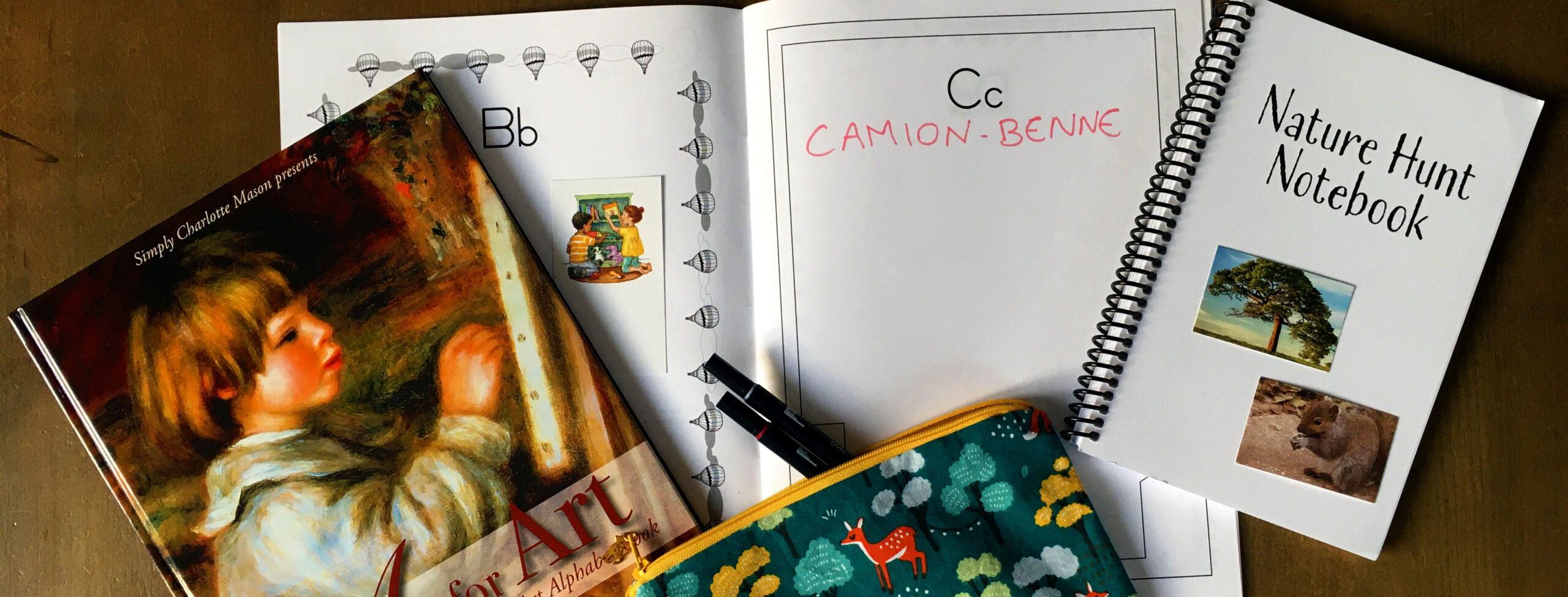Charlotte Mason's pedagogy
Charlotte Mason was a British pedagogue who greatly influenced families and schools in the 19th century. Her pedagogy was rediscovered by Americans in the 1980s and it has been developing in France for the past several years.
Parents themselves begin to (…) clamour for an education which shall qualify their children for life rather than just for earning a living (…), the more of a person we succeed in making a child, the better will he both fulfil his own life and serve society. Charlotte Mason, in Philosophy of Education
Children as Persons
Charlotte Mason insists on respect for children. This notably involves considering them in their uniqueness, with their personalities – their value does not depend on their success; also, respecting their pace and what is good for them to grow – short lessons and time for free play, for example.
Learn to Learn
Learning is about cultivating – or rediscovering – the intrinsic motivation to learn through observation and wonder at nature, the exploration of subjects that are of personal interest to the child, the importance of the meaning to be given to everything. In this, Charlotte Mason’s approach is similar to that of Maria Montessori.
Stories
Teaching according to Charlotte Mason essentially involves “living books”, which contain rich stories, giving nourishment for reflection. History also has a large place, it is one of the means of finding meaning in what is studied.

Relationships
Charlotte Mason encourages building relationships in any situation, that is, giving the child the opportunity to interact personally with those he meets: the educator and other children first, but he can also be touched by the character of a book, a historical figure or even an artist.
Narration
The exercise of Charlotte Mason's pedagogy is narration. The child says in his own words – or recounts – what he understood from what he read or heard read once. He can also talk about what struck him or what made him react. During the first years, this exercise is done orally only, the adult writes what the child says and the child copies it, then the child writes directly, himself. With the practice of attention, this allows the child to retain and recount, increasingly rich content.
Nature
Breathing fresh air for good physical development was a great concern for Charlotte Mason. She considered it important that a large part of children's time consist in being outside exploring, observing nature, playing in the open air and recording their discoveries in a nature journal. In the present day, observing nature also helps create peace and calm, within us.
Beauty
Seeking beauty imparts nourishment of the soul, being surrounded with beautiful things, and/or by seeking to achieve them. Educators are thus encouraged to use beautiful tools, beautiful materials for furnishings, as well as to offer beautiful learning materials. This also means limiting anything that is categorized as “childish.” Children are thus more easily encouraged to seek beauty in what they produce.
Educators as Role Models
Charlotte Mason emphasizes the importance of “modeling” what we want to pass on to children. For example, if we want children to read often, or keep a discovery journal, she invites us to do the same, as adults. We thus place ourselves in our own process of discovery and learning and we model for children what we expect of them.
Development of Personal Reflection and Voice
Through her entire philosophy of education, Charlotte Mason encourages the formation of “their own thinking”, in children and adolescents. Her methods invite to appropriate ideas, personally, in order to be able to articulate them, together, and express them. For example, from the “feast of living ideas” presented to the child, he takes what interests him and leaves the rest. This approach supports children’s intrinsic motivation to learn and gives them the opportunity to cultivate their own voice. Through narration, they tell what they have understood, and not what is precisely expected for the lesson of the day. Over time, the child is expected to retain and return more and more information with each lesson. They thus learn to express the ideas they have appropriated.
To find more :
♦ Ambleside :
- Curricula directly inspired by Charlotte Mason amblesideonline.org
- International network of schools inspired by Charlotte Mason :
amblesideschools.org
♦ Simply Charlotte Mason : podcasts on the Charlotte Mason approach and how to implement it, curricula for homeschooling
♦ Example of full curricula inspired by Charlotte Mason : agentlefeast.com
♦ Site of reference for Charlotte Mason in France : Charlottemason.fr
